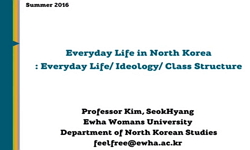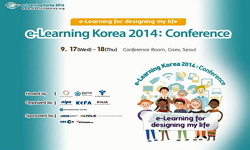Background and Objectives The effective management of subjective tinnitus should start with an accurate diagnosis based on an appropriate classification. Since there is no gold standard for managing subjective tinnitus, clinicians can select from vari...
http://chineseinput.net/에서 pinyin(병음)방식으로 중국어를 변환할 수 있습니다.
변환된 중국어를 복사하여 사용하시면 됩니다.
- 中文 을 입력하시려면 zhongwen을 입력하시고 space를누르시면됩니다.
- 北京 을 입력하시려면 beijing을 입력하시고 space를 누르시면 됩니다.

우리나라(한국) 대학병원의 주관적 이명 치료 현황 = Current Trends in the Treatment of Subjective Tinnitus at University Hospitals in Korea
한글로보기https://www.riss.kr/link?id=A101610761
- 저자
- 발행기관
- 학술지명
- 권호사항
-
발행연도
2013
-
작성언어
Korean
-
주제어
Korea ; Questionnaire ; Tinnitus ; Treatment.
-
등재정보
KCI등재
-
자료형태
학술저널
- 발행기관 URL
-
수록면
266-277(12쪽)
- DOI식별코드
- 제공처
-
0
상세조회 -
0
다운로드
부가정보
다국어 초록 (Multilingual Abstract)
Subjects and Method A five-major-item questionnaire on current tinnitus treatments was sent by email to otologists at 37 university hospitals in Korea; 30 (81.1%) replied.
Results The mean incidence of tinnitus in otology outpatient clinics was 22.7% (range 10-40%). Common treatments were oral pharmacological therapy, regular counseling with tinnitus retraining or cognitive behavioral therapy and hearing aids. Tinnitus retraining therapy and hearing aids were considered the most effective when the visual analog scale scores were 7.0 and 6.6, respectively, and considered safe when the scores were 9.9 and 9.3. Ginkgo biloba and benzodiazepines were the most frequently prescribed drugs, although their reported effectiveness was questionable. Intra-tympanic steroid injection was not considered effective (3.8) or safe (6.3). Somatosensory-based treatments such as treating neck muscle or temporomandibular joint disorders were also used to relieve a subgroup of somatic tinnitus.
Conclusion Our results showed trends similar to those in other countries, yet we have not reached the level of evidence-based clinical practice due to the lack of reliable and effective treatment options. Further research on tinnitus-treatments is needed, particularly about randomized controlled studies with blinding.
Background and Objectives The effective management of subjective tinnitus should start with an accurate diagnosis based on an appropriate classification. Since there is no gold standard for managing subjective tinnitus, clinicians can select from various treatment options after considering the multifactorial etiology of tinnitus. This study surveyed otologists at university hospitals in Korea to identify the treatments used for subjective tinnitus and to obtain basic information on evidence-based medicine for treating tinnitus.
Subjects and Method A five-major-item questionnaire on current tinnitus treatments was sent by email to otologists at 37 university hospitals in Korea; 30 (81.1%) replied.
Results The mean incidence of tinnitus in otology outpatient clinics was 22.7% (range 10-40%). Common treatments were oral pharmacological therapy, regular counseling with tinnitus retraining or cognitive behavioral therapy and hearing aids. Tinnitus retraining therapy and hearing aids were considered the most effective when the visual analog scale scores were 7.0 and 6.6, respectively, and considered safe when the scores were 9.9 and 9.3. Ginkgo biloba and benzodiazepines were the most frequently prescribed drugs, although their reported effectiveness was questionable. Intra-tympanic steroid injection was not considered effective (3.8) or safe (6.3). Somatosensory-based treatments such as treating neck muscle or temporomandibular joint disorders were also used to relieve a subgroup of somatic tinnitus.
Conclusion Our results showed trends similar to those in other countries, yet we have not reached the level of evidence-based clinical practice due to the lack of reliable and effective treatment options. Further research on tinnitus-treatments is needed, particularly about randomized controlled studies with blinding.
참고문헌 (Reference)
1 유화종, "이명 클리닉을 내원한 환자의 진단적 분류에 따른 빈도와 임상적 특성" 대한이비인후과학회 54 (54): 392-398, 2011
2 Steenerson RL, "Treatment of tinnitus with electrical stimulation" 121 (121): 511-513, 1999
3 Hanley PJ, "Treatment of tinnitus with a customized, dynamic acoustic neural stimulus: clinical outcomes in general private practice" 117 (117): 791-799, 2008
4 Sakata E, "Treatment of Cochlear-Tinnitus with Dexamethasone Infusion into the Tympanic Cavity" 2 : 129-135, 1996
5 Hulshof JH, "The value of flunarizine in the treatment of tinnitus" 48 (48): 33-36, 1986
6 Hoare DJ, "Systematic review and meta-analyses of randomized controlled trials examining tinnitus management" 121 (121): 1555-1564, 2011
7 De Ridder D, "Primary and secondary auditory cortex stimulation for intractable tinnitus" 68 (68): 48-55, 2006
8 Belén A, "Pharmacological Approaches to tinnitus treatment. Textbook of tinnitus" Springer 625-637, 2011
9 Jastreboff PJ, "Neurophysiological model of tinnitus: dependence of the minimal masking level on treatment outcome" 80 (80): 216-232, 1994
10 Bohning DE, "Motor cortex brain activity induced by 1-Hz transcranial magnetic stimulation is similar in location and level to that for volitional movement" 35 (35): 676-683, 2000
1 유화종, "이명 클리닉을 내원한 환자의 진단적 분류에 따른 빈도와 임상적 특성" 대한이비인후과학회 54 (54): 392-398, 2011
2 Steenerson RL, "Treatment of tinnitus with electrical stimulation" 121 (121): 511-513, 1999
3 Hanley PJ, "Treatment of tinnitus with a customized, dynamic acoustic neural stimulus: clinical outcomes in general private practice" 117 (117): 791-799, 2008
4 Sakata E, "Treatment of Cochlear-Tinnitus with Dexamethasone Infusion into the Tympanic Cavity" 2 : 129-135, 1996
5 Hulshof JH, "The value of flunarizine in the treatment of tinnitus" 48 (48): 33-36, 1986
6 Hoare DJ, "Systematic review and meta-analyses of randomized controlled trials examining tinnitus management" 121 (121): 1555-1564, 2011
7 De Ridder D, "Primary and secondary auditory cortex stimulation for intractable tinnitus" 68 (68): 48-55, 2006
8 Belén A, "Pharmacological Approaches to tinnitus treatment. Textbook of tinnitus" Springer 625-637, 2011
9 Jastreboff PJ, "Neurophysiological model of tinnitus: dependence of the minimal masking level on treatment outcome" 80 (80): 216-232, 1994
10 Bohning DE, "Motor cortex brain activity induced by 1-Hz transcranial magnetic stimulation is similar in location and level to that for volitional movement" 35 (35): 676-683, 2000
11 Okamoto H, "Listening to tailor-made notched music reduces tinnitus loudness and tinnitus-related auditory cortex activity" 107 (107): 1207-1210, 2010
12 Topak M, "Intratympanic methylprednisolone injections for subjective tinnitus" 123 (123): 1221-1225, 2009
13 Trotter MI, "Hearing aids and tinnitus therapy: a 25- year experience" 122 (122): 1052-1056, 2008
14 Holdefer L, "Group therapy for patients with tinnitus at the University of Brasilia Medical School" 76 (76): 102-106, 2010
15 Hilton M, "Ginkgo biloba for tinnitus" (2) : CD003852-, 2004
16 von Boetticher A, "Ginkgo biloba extract in the treatment of tinnitus: a systematic review" 7 : 441-447, 2011
17 Levine RA, "Evidence for a tinnitus subgroup responsive to somatosensory based treatment modalities" 166 : 195-207, 2007
18 Davis A, "Epidemiology of Tinnitus. 1st ed. Tinnitus Handbook" Thomson Learning 1-23, 2000
19 Speckens AE, "Cognitive behavioural therapy for medically unexplained physical symptoms: a randomised controlled trial" 311 (311): 1328-1332, 1995
20 Hesser H, "A systematic review and meta-analysis of randomized controlled trials of cognitive-behavioral therapy for tinnitus distress" 31 (31): 545-553, 2011
동일학술지(권/호) 다른 논문
-
후두에 발생한 호산성 사구종양(Oncocytic Glomus Tumor) 1예
- 대한이비인후과학회
- 최의제
- 2013
- KCI등재
-
- 대한이비인후과학회
- 이재욱
- 2013
- KCI등재
-
호흡기 상피세포에서 MUC5AC와 MUC5B 발현에 대한 Anthocyanidin의 효과
- 대한이비인후과학회
- 이준혁
- 2013
- KCI등재
-
소음 노출 후 내이에서 Endothelin-1, Endothelin 수용체 A와 B의 발현양상 변화
- 대한이비인후과학회
- 허강민
- 2013
- KCI등재




 ScienceON
ScienceON






